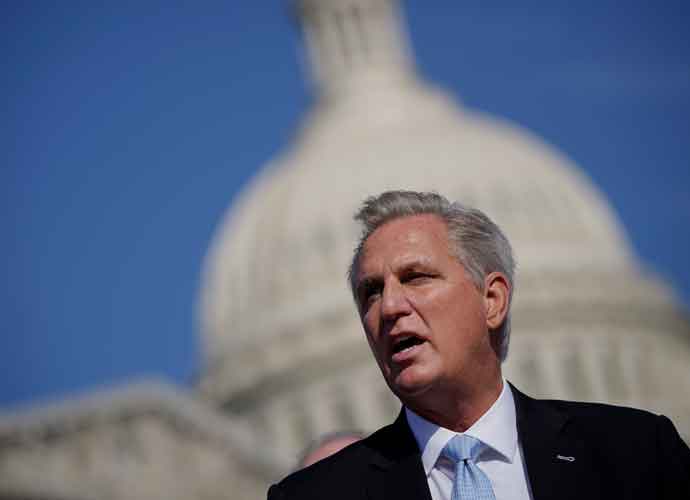Kevin McCarthy Faces Possible Loss In House Speaker Vote
House Minority Leader Kevin McCarthy (R-California) may not have the votes to become the House Speaker after the Republicans flipped the House in last month’s midterm elections.
The slim Republican majority leaves just a 10-seat margin and six of the Representative-elects have said that they will not vote for McCarthy, leaving him two seats short of the 218-vote threshold in the best-case scenario.
McCarthy remains confident that he will be able to secure 218 votes.
“I’ll never leave,” he said in an interview with CNN.
Subscribe to our free weekly newsletter!
A week of political news in your in-box.
We find the news you need to know, so you don't have to.
McCarthy is being challenged by Rep. Andy Biggs (R-Arizona), who is known to vote further to the right than McCarthy does. McCarthy won the GOP nomination to become House Speaker last month in a procedural vote. The results were 188-31 in favor of McCarthy but only required a simple majority.
If McCarthy isn’t able to garner 218 votes, there’s a possibility that the race could go to multiple ballots, which hasn’t happened since 1923. If neither McCarthy or Biggs are able to reach a majority vote, some Republicans say they would be willing to work with Democrats and find a more moderate Republican.
Multiple Republicans have publicly voiced a desire for an option other than McCarthy. Rep. Matt Gaetz (R-Florida) suggested Rep. Jim Jordan (R-Ohio) would be a popular option if he decided to run, adding that he doesn’t think the person who will be speaker is in the race yet. House Minority Whip Steve Scalise (R-Louisiana) is another name that has repeatedly come up as a likely frontrunner should he put his name up for a vote.
Get the most-revealing celebrity conversations with the uInterview podcast!







Leave a comment